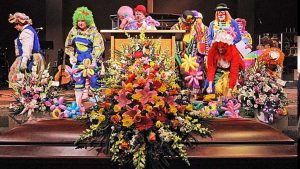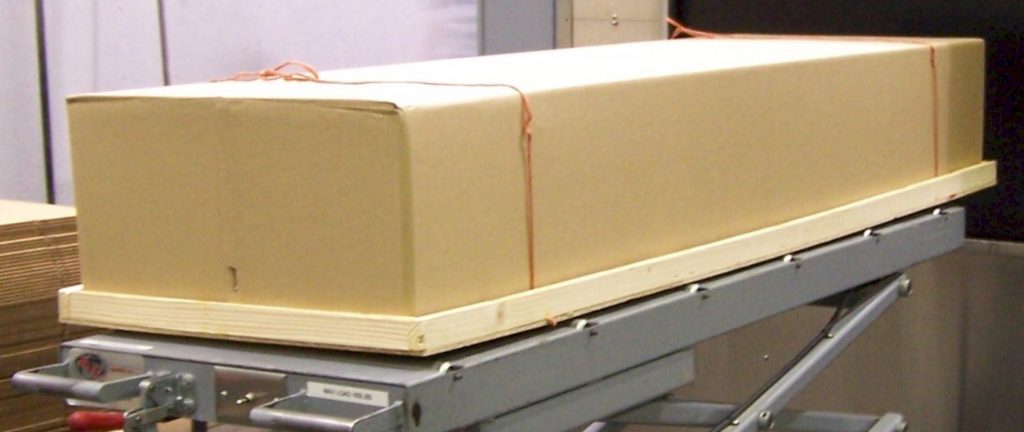Death is a given, but what about the time-honoured ritual of the funeral?
With Australia increasingly becoming more secular, nomadic and more relaxed, the rules about how to commemorate death and the funeral is rapidly changing.
This change will only accelerate as Baby boomers continue to age and deaths spike in 2050. According to the Australian Bureau of Statistics, Australians aged 65 or over is forecast to more than double to 7.9 million in 2050, an increase of approximately 2.4% per annum.
Just as Baby boomers transformed weddings in the ’90s? — they are now transforming the death industry by replacing funerals (where the body is present) with memorial services (where the body is not). Baby Boomers are now less religious compared to previous generations and are changing the game for their parents and themselves.
Seeing a coffin being lowered into the ground or disappearing behind curtains is a dramatic touch many people are choosing not to have to go through, as their last physical connection with their loved one.
They’re choosing alternative ways of saying goodbye. Instead of being a solemn event, a growing number of families are using it as a time to celebrate a persons life and be joyful. Such ceremonies are being held at parks, beaches, pubs and sporting facilities, with music, singers, releases, costumes and even fireworks used to entertain the living.

It’s not for everyone. There are plenty of others who prefer the sober dignity of a traditional church funeral, or indeed a secular service that is solemn rather than celebratory. But, for boomers and beyond, the trend is towards a celebratory event with the deceased person being the star of the show.
Funeral homes need to adapt
Funeral homes need to adapt, according to Peter Erceg, Founder of eziFunerals. “More Australians are choosing cremation, due to expense (they can cost a third the price of a burial), the environment, and family members living far apart. And cremation allows loved ones to stage a memorial anywhere, at any time, and to store or scatter ashes as they please,” says Erceg.
Owner Troy Upfield, who runs Chapter House Funerals in Melbourne, says new independent funeral homes, are already adapting to changing demands. “Our funeral services are more life-centered, around the person’s personality, likes and dislikes. They’re unique and not standardised,” he says.
“The only way we can survive is to provide a funeral service that families find meaningful and without platitudes. We have moved away from the traditional drab funeral parlour and provide a more concierge service that offers 1:1 attention around the clock with modern, appealing offices and botanical spaces where families can sit and arrange their loved one’s service in comfort, warmth and safety. Our clients are the family member arranging the funeral service for their loved one, they are typically aged between 40 – 60 years old and they require a space that feels welcoming, trusting and safe. Offering gifts and bringing animals to nursing homes is not our ‘schtick’ , we prefer to focus on the family in need of our attention as funeral directors”, says Upfield.

Photo courtesy of Chapter House Funerals
Change has also sparked a rise in new death-related industries such as death doulas (caring for the terminally ill), death cafes (to discuss life’s last chapter over cake and tea), funeral celebrants (officiants who lead end-of-life events), living funerals (attended by the honoured while still breathing), and end-of-life planning (for the healthy who think ahead). The rise of social media also allows lives to continue indefinitely in memorial Facebook pages, tribute blogs on YouTube and Instagram.
No ceremony, no service, and no fuss
“In recent years, it has been a rise in popularity of ‘no-fuss funerals’ with consumers wanting as little fuss as possible for the cremation of the body”, says Erceg.
A ‘no fuss’ or what is commonly referred to as ‘direct cremation’ is the cheapest and simplest type of funeral. It involves collection of the body, and carrying out the cremation, (usually with no one present), and return the ashes afterwards.
Everything is arranged very simply and carried out with respect and dignity. Both David Bowie and the novelist Anita Brookner, went for “direct cremation”, where the body is sent straight to the cremator from hospital or home, with no attendance or ceremony. Ashes are returned to the family allowing family and friends to celebrate their life and relationships several months later, in a place special to them.

From coffins to compost
With increased concern for the environment, more Australians are opting for green funerals. According to Stacey Farmer, Gift of Grace Funerals and Serendipity Coffins, the choice of green funerals is growing rapidly and increasing in popularity. Green burial sites require the use of eco-friendly and biodegradable burial containers, such as wicker coffins, cardboard coffins and shrouds .
If you’d prefer to be a little less green and be cremated in the traditional sense of the word, you can always make an environmentally conscious urn choice. Select a wooden urn made from sustainable sources, or opt for the Bios Urn, a biodegradable urn made from coconut shell, compacted peat and cellulose that contains the seed of a tree, that best suits the memories of your loved one, varying from Australian natives, rose bushes or even a fruit tree of your choice. Once remains have been placed in the urn, it can be planted and the seed germinates and begins to grow, giving new meaning to “life after death.”

The industry is literally thinking outside the box
“My work is letting people connect with the natural cycle as they die,” says Steve Summers in Melbourne, who considers himself as part of the “new-death-care industry” and is a founding partner of Chapter House Funerals.
Steve questions why death should be a one-event moment, rather than an opportunity to create an enduring tradition, a death day, to honour the deceased: “I want to support my family to choose a ritual that they do every year, instead of a one off event”, he says. However it won’t be a concrete block and headstone. Our mission is to create a botanical sanctuary for families, a modern and beautiful place where there will be no hearse, no men in back and no white ladies”, says Summers.
Death has also inspired funeral homes, like Chapter House Funerals, to transform a loved one’s ashes into “diamonds,” jewellery and art. In an Australian first, Chapter House Funerals has partnered with Swiss company, Algordanza Memorial Diamonds to memorialise themselves or others by converting their ashes into the precious diamonds.
Learn more about organising a funeral in Australia today!
Get your FREE eBook: ‘What Kind of Funeral’
About eziFunerals
eziFunerals supports individuals and families cope with end of life decisions, death and funerals. We are an independent, Australian-owned and operated company, and are not a subsidiary of any other corporation. We do not conduct funerals and we are not part of any other funeral company.

